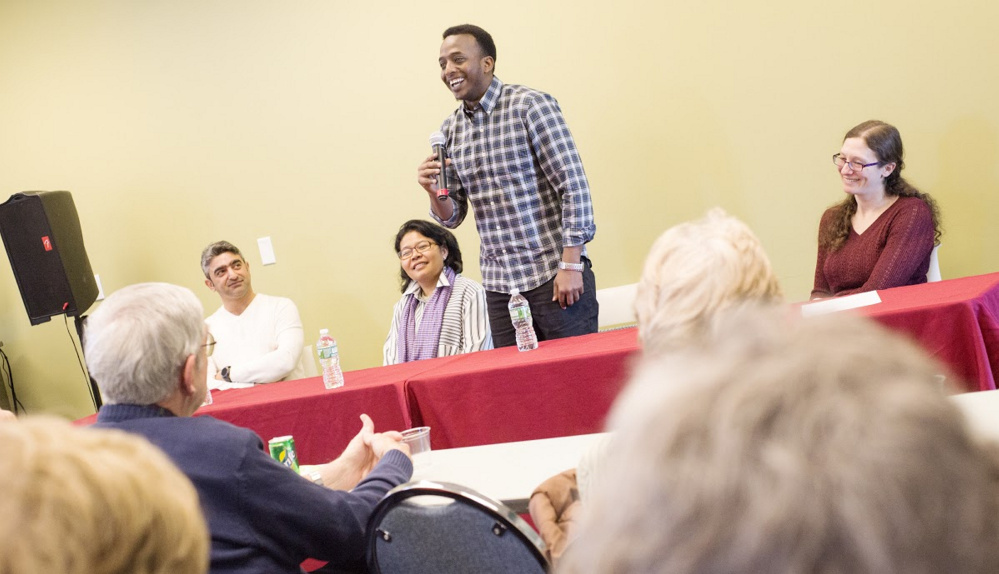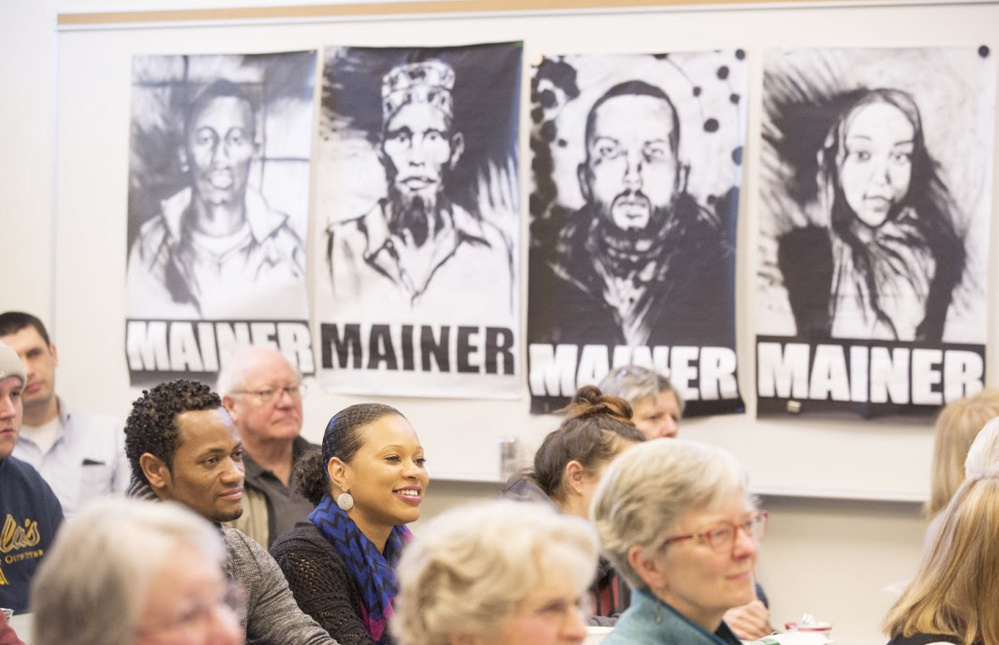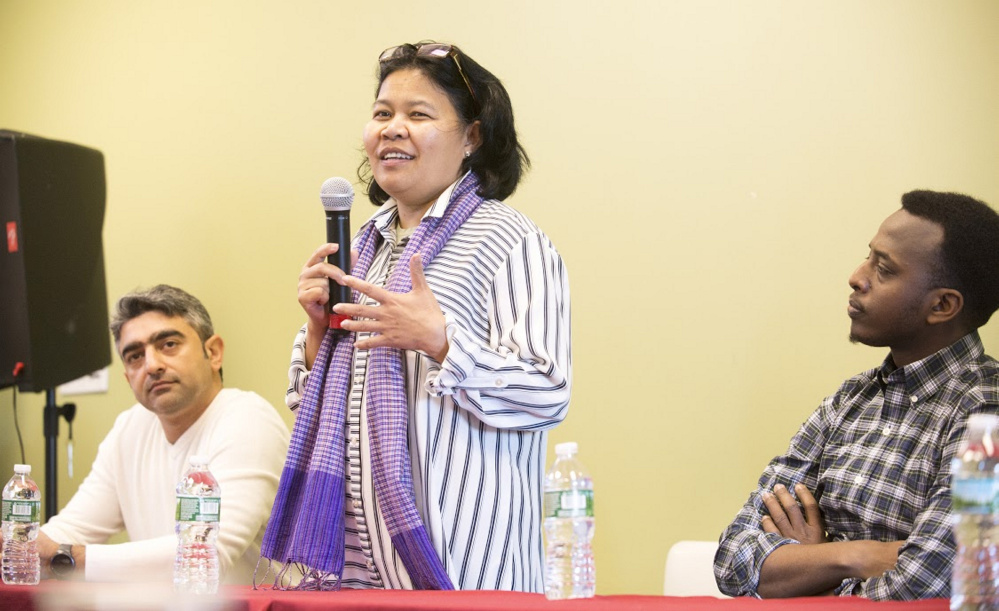AUGUSTA — When Abdi Iftin was growing up in Somalia, he’d dream of coming to America for a better life. He’s lived in Maine for more than two years, but he said his dreams are different now that Donald Trump is president.
Iftin and two other refugees shared their stories during a panel at the Holocaust and Human Rights Center of Maine at the University of Maine at Augusta on Monday afternoon.
“I don’t think this is the American dream I expected,” Iftin said, referring to being a Muslim from Somalia living in the U.S. under the current presidential administration.
The forum began just as Trump’s newly signed executive order was announced. The new order bans immigration from six Muslim-majority countries — Somalia, Libya, Iran, Sudan, Yemen and Syria — and reinstates a temporary ban on all refugees.
Iftid said he has no idea why Trump keeps including his homeland in the travel ban, because he doesn’t know of any terrorist attack in America carried out by a Somali.
“I don’t think Somalis are a problem to this country,” Iftin told a packed audience. “We just come here to find peace and a better life.”
He said he’s the only one from his family in the U.S., because his parents, brother and sister haven’t come here yet. His brother, in Kenya, has been going through the refugee process for almost two years, but he’s given up trying to come to America and is now trying to get into Canada or Australia.
“This is a huge headache for me,” he said. “I was hoping we could all reunite and start a new life and start dreaming about the American dream.”
Iftin, 31, of Portland was joined on the panel by Iraqi refugee Nawar Al Obaidi and Cambodian refugee Makara Meng. Iraq wasn’t included in Trump’s newest travel ban.
Al Obaidi, 38, lives in Westbrook and has a bachelor’s degree in engineering that he earned in Iraq and a master’s degree in project management from a school in New Hampshire. He said he started from scratch when he came to the U.S. in 2012 with his wife and three children.
“When I was in Iraq, I was a supervisor at a Caterpillar dealership, but when I came here, I started as a laborer working part-time doing windows,” Al Obaidi said. He said there are a lot of misconceptions about Iraqis.
“For one thing, we do have cars and technology,” he said. “A lot of people think that Iraqis are bad, but they’ve never met me or know who I am.”
Meng escaped the genocide in Cambodia in the early 1980s and came to Maine in 1984 during a blizzard. She had the audience laughing when she talked about getting off the plane in Boston wearing a sarong and flip flops because the only videos and pictures she saw about America were taken during the summer.
“I thought I was smart because I wanted to sell the snow,” she said. “I told the idea to my sponsor who said I should probably come up with a new business plan.”
The three panelists said erasing misconceptions about their native lands is often challenging. Meng, 46, of South Portland said people think that in Cambodia, they eat dogs and rats.
Al Obaidi said people in Iraq don’t travel by camel, and Iftin said not everyone from Somalia is either a pirate or a terrorist.
All three refugees said they don’t want to force anyone to believe one thing or the other, because they support everyone’s right to have an opinion. They just want to tell their stories of survival and of their immigration to the United States and let everyone judge for themselves.
Jason Pafundi can be contacted at 621-5663 or at:
jpafundi@centralmaine.com
Twitter: jasonpafundiKJ
Send questions/comments to the editors.






Success. Please wait for the page to reload. If the page does not reload within 5 seconds, please refresh the page.
Enter your email and password to access comments.
Hi, to comment on stories you must . This profile is in addition to your subscription and website login.
Already have a commenting profile? .
Invalid username/password.
Please check your email to confirm and complete your registration.
Only subscribers are eligible to post comments. Please subscribe or login first for digital access. Here’s why.
Use the form below to reset your password. When you've submitted your account email, we will send an email with a reset code.